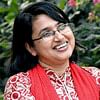Protecting the students' best interests

I remember I was in the classroom of a high school in a small district of Bangladesh when several students appeared at the door, and sought permission from our teacher to say a few words before everyone. It was very surprising for us to see young men (who were probably studying in college) in a girls' school. We learned from them that a tragedy had occurred in Dhaka. Several university students had been killed by a truck while they had been protesting against the military rule. They also informed us that as an expression of solidarity, all students of Bangladesh would boycott class on that day. The college students urged us to join the movement, and all of us left our class within minutes.
Usually, I took my education very seriously and did not miss classes. But on that day, leaving the classroom felt justified. Even as an adolescent, who had limited understanding of the overall political reality of the country, I thought it was totally unacceptable that students would have to lose their lives or suffer in any manner while protesting in a non-violent way. The horror I had felt about the brutality of the incident remained with me for many years. The memory came back during recent student protests demanding road safety.
Many people have commented on their pleasant surprise to witness the courage of the students and the innovation as well as energy that they had brought to the present movement. Should we be surprised? Only a few years ago, we have observed the participation of school students in a movement demanding that the perpetrators of war crimes in 1971 be brought to justice. Adolescents have participated in various political activities including anti-British movement, the language movement of 1952 and our liberation war. Very recently, we have seen thousands of school students in the USA participating in protests over school shootings. When students' lives are at risk, they do not remain in classrooms. There are many examples from different parts of the world.
Those of us working for children's rights strongly believe that children should not be involved in armed conflicts, and no one should exploit them to advance their own agenda. In many countries, there are initiatives to reintegrate former child soldiers with their families.
According to the United Nations Convention on the Rights of the Child (which Bangladesh ratified), children have a right to express their views on decisions affecting their lives. It is also important to remember that the views of a child must be given "due weight" in accordance with their age and maturity, and that children's "best interest" should be the prime consideration. Children should also be protected from violence and vulnerabilities while they exercise their right to participation by expressing themselves.
During the recent movement, it has been said many times by many people that children have taught us many things within a short space of time. They have done what we have failed to do all along. Yes, it is our collective failure that the children had to come to the streets leaving classrooms (thus compromising their right to education), demanding that our roads are made safer for all.
Several years ago, I had the privilege of observing a Child Council Election in a City Corporation. Child candidates ran the campaign in a very peaceful way. On the election day, children exercised their voting rights in a festive environment, and the candidates who were defeated congratulated the winners and also expressed an interest to work together to realise children's rights. The adult observers, including myself, learned that day that it is possible to practice democracy in a mature way by respecting the opponents. During humanitarian responses, often times children are the most authentic source for assessing which families have been worst affected and thus deserve support, as the list prepared by adults could be biased.
In most countries, people can start to vote when they are 18 years of age. But no one turns into an active citizen overnight after reaching that age. Children need to learn about their rights and experience democratic practices. This is a journey.
I have the privilege of observing children expressing the challenges they face while accessing health, education, protection services in "dialogues" with the representatives of relevant government departments and elected representatives in different districts of Bangladesh. In most cases, the duty-bearers listen to children actively and take actions. There has been a visible improvement in the quality of services, and the budgetary allocation for children has also increased in areas where children are engaged with the local government system to make those child-friendly. I have also seen how confidently child representatives talked to the ministers in Dhaka, and noted that their recommendations were received well by the ministers. Children are the "experts" on their lives. Expressing views candidly is an empowering experience for them. We need to create a safe space for discussions and debates for the children, and the duty-bearers responsible for implementing decisions should be held accountable. Then there will be no need for the children to be on the streets during school hours.
I hope the authorities will be able, through appropriate actions, to convince the students concerned about road safety that the roads will indeed be made safer and those responsible for compromising people's safety will be held accountable from now on.
Let us listen to our children in a meaningful way and consider their "best interest" in our actions. I urge all concerned not to use the movement for their own interest and do whatever we can to protect children in all settings. It is our responsibility to ensure that the students are safe, continue their studies, grow up as active citizens, and realise their full human potential.
Laila Khondkar is Director, Child Rights Governance and Child Protection, Save the Children.





Comments